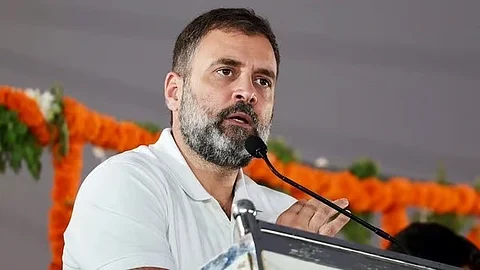

The Supreme Court on Monday pulled up Congress leader Rahul Gandhi over his remarks about the Indian Army during the Bharat Jodo Yatra in December 2022, observing that “a true Indian will not say all this,” even as it stayed criminal defamation proceedings against him.
A bench of Justices Dipankar Datta and Augustine George Masih questioned Gandhi’s choice of words and the platform he used to make such claims, asking his lawyer, senior advocate Abhishek Manu Singhvi, “Were you there? How did you get to know that 2,000 square kilometres has been captured?”
Gandhi had alleged that the Chinese Army had “captured 2,000 sq km of Indian territory,” “killed 20 Indian soldiers,” and “thrashed our jawans in Arunachal Pradesh” — statements made during a press interaction on December 9, 2022, following a border clash in Arunachal Pradesh’s Yangtse sector.
Singhvi argued that Gandhi retains his fundamental right to freedom of speech under Article 19(1)(a) of the Constitution, even as a member of Parliament. He said the remarks were intended to prompt the media to question the government on national security issues.
However, the bench disapproved of Gandhi’s decision to speak publicly on sensitive military matters, suggesting such statements should have been made within Parliament instead of in media briefings or social media posts. “As leader of the Opposition, should you really be making such statements at a time of cross-border conflict?” the court asked.
The Supreme Court agreed to examine Gandhi’s legal challenge to a May 29 Allahabad High Court order, which had declined to quash the trial court’s summons issued on February 11. Singhvi argued that Gandhi was not heard before the summons was issued and questioned whether the complainant, a retired BRO director, could be considered “aggrieved” under defamation law.
The defamation complaint, filed by Uday Shankar Srivastava, alleged that Gandhi’s statements were false, damaging to national integrity, and intended to demoralise the armed forces. Srivastava also noted the army had clarified it had successfully repelled the Chinese troops in the Yangtse clash.